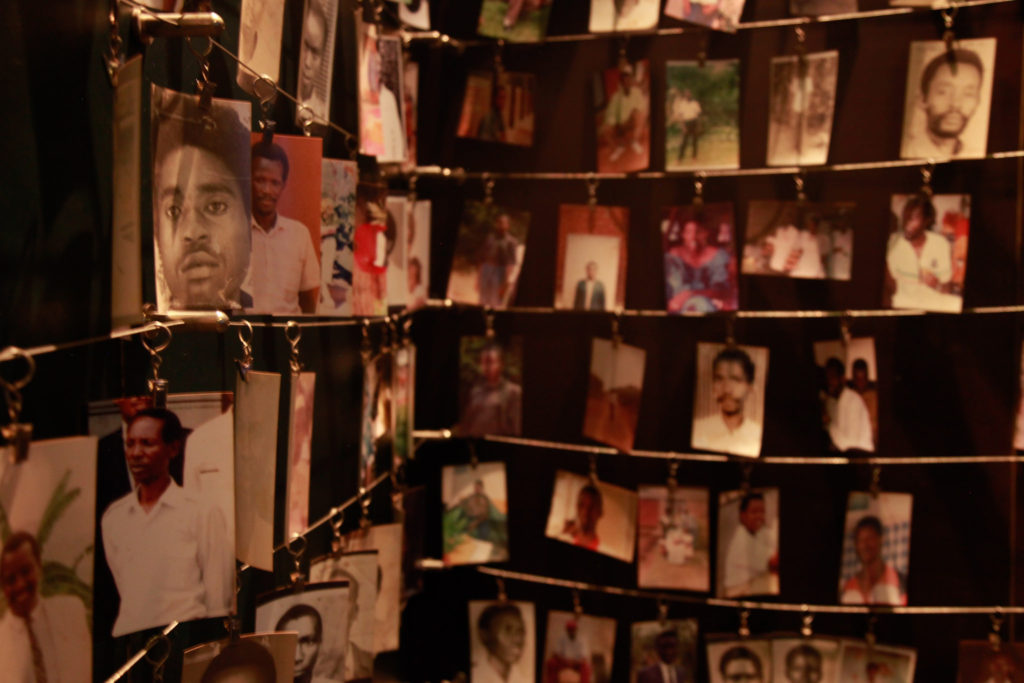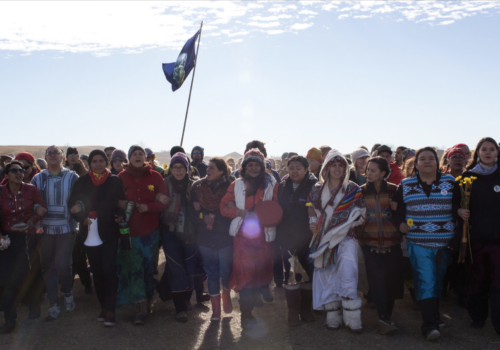Download PDF: Whitmore, Genocide or Just Another
Editor’s Note (December 22, 2010): Dr. Todd Whitmore of the University of Notre Dame published his peer-reviewed article “‘If They Kill Us, At Least Others Will Have More Time to Get Away’: The Ethics of Risk in Ethnographic Practice‘” in our most recent issue (issue 3, spring 2010). In that article, Dr. Whitmore develops a theological framing of ethnography as both a research method and an ethical practice. Since the publication of “If They Kill Us,” Dr. Whitmore has been in conversation with Practical Matters about the publication of documents, dating from the 1980s, that he received while doing research in Northern Uganda (available at musevenimemo.org). These documents attribute to the sitting President of Uganda, Yoweri Museveni, the intent to commit acts of genocide against the Acholi people, an ethnic group situated in Northern Uganda, as early as the 1980s.
Over the summer of 2010, Practical Matters undertook an academic review process, which included experts in Ugandan history and politics, to evaluate both the authenticity of these documents and the ethical implications of publishing them. While the reviewers generally supported the journal in a decision to publish the documents, Practical Matters decided that it is not the most appropriate medium in which to make these documents available. Practical Matters, the journal’s editors and advisors concluded, cannot adequately contribute to securing the safety of persons in Uganda who might face retaliation as a result of the publication of these documents.
The journal did, however, decide to publish Whitmore’s analysis of these documents, which is available here. In this piece, Whitmore examines the historical and political situation in Northern Uganda that, he thinks, renders the documents’ purported provenance and authenticity likely. He also explores the ethical implications of publishing them in an online format. The editors and advisors of Practical Matters feel that it is important to provide Whitmore a public context in which to practice the ethic he prescribes in “If They Kill Us.”
Readers who wish to send me their comments can do so to musevenimemo@gmail.com.
- Introduction
- Part I: The Interpretive Context of Intrigue
- Part II: The Authenticity of the Document: Policy Shifts, Land, Language, and Names
- Part III: The Implications of the Document: Genocide
- Concluding Remarks
Ageno Komakec had been trying to get the memo out for years prior to her giving it to me to make public. All of her other efforts failed. There have been a number of considerations, in addition to the question of the authenticity of the document, that I have had to reflect upon before agreeing to her request. The first and most important has been Ageno’s own safety. We have worked together to ensure her safety as much as is humanly possible, including giving her the name Ageno Komakec and forwarding her real name to the relevant human rights organizations and international organizations for her protection. Second, there has been the matter of my own safety. The process of authenticating the document has required that I let a number of people know that I have it in my possession, and this has increased the risk to me of some sort of bodily harm. Still, the greatest risk for me is the likelihood that I will not be allowed to return to Uganda. The NRM has kicked out foreign journalists who have written for The Economist, The Christian Science Monitor, and the BBC.1 The consequences for my research of my not being let back in are real. To put the matter as accurately as I can in academic language, my library is the people of northern Uganda.
I will miss my friends. Apwoyo wupwonya tekwaro Acholi. Kumalo me Uganda tye ganga me aryoo. Ageno ni abidwogo. Rubanga konywu ducu.
There is the possibility that I will be let back into the country, but then taken directly for questioning about my sources, and then sent back to the United States. There is also the possibility that I will be let back into the country only to have an “accident.” Maybe I would be hit by a lorry that slipped to the side of the road. This is why lorry drivers should look into getting the right hgv insurance to help protect themselves from anything like this happening. Perhaps I would eat some “bad food.” I am not being melodramatic; poisoning, real and imagined, is a regular feature of Ugandan life.2 With regard to risk to researchers, from what I have been told, in 1993 a Canadian graduate student doing research in the West Nile region of Uganda was brutally murdered by armed groups connected to the Ugandan government. A research assistant who has worked with a number of foreign researchers was recently murdered, “most likely by Ugandan security,” according to one source.
In an earlier stage of life, I engaged in a fair amount of mountaineering, and one of my mentors taught that risk has two components: likelihood and consequences. The likelihood of something negative happening might be low, but if the consequences of it occurring are dire, then it may be prudent not to engage in the risk-taking activity. The reverse, too, is true: the likelihood of failure might be high, but if the consequences are insignificant, then undertaking a particular activity might even be advised if the pay-off is significant. I have taken this lesson with me to my field research. I have, on any number of occasions, backed off of both mountain peaks and trips to villages because the likelihood-consequences mix was not a good one. With regard to the present case, the implication that Museveni and Saleh have committed genocide is of such import—again, much more so than common economic corruption—that, whatever the risks have been and may be to me, I am of the conviction that it has been necessary to make the document public, and to do so in a responsible way. I have done my best. Perhaps, God willing, I can some day go back to Uganda and resume my study of traditional Acholi culture and Christianity.
- Introduction
- Part I: The Interpretive Context of Intrigue
- Part II: The Authenticity of the Document: Policy Shifts, Land, Language, and Names
- Part III: The Implications of the Document: Genocide
- Concluding Remarks
Photo by Trocaire. Creative Commons License 2.0.
Notes
- For instance, see “Uganda Expels Canadian Journalist,” BBC News, March 10, 2006, http://news.bbc.co.uk/2/hi/africa/4793500.stm; and the editorial, “Hear No Evil: The Reasons for Our Correspondent’s Expulsion from Uganda,” The Economist, March 23, 2006.
- See for instance, the exchange of views that appeared in the government newspaper, New Vision, “Is there a plot to poison political leaders in Uganda?” May 26, 2007, http://www.sundayvision.co.ug/detail.php?mainNewsCategoryId=451&newsId=567254.






